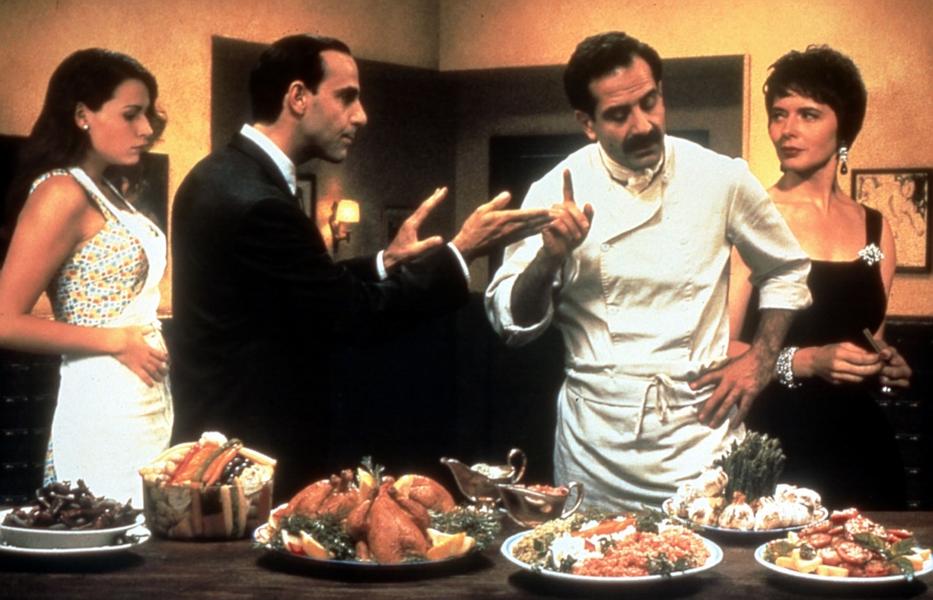Our food obsession has scaled new heights during the Covid-19 lockdown with social media posts bursting with all kinds of master chef level feats of brilliance. Necessity is the mother of invention and an entire smorgasbord of culinary delights has been trending online including homemade sourdough bread and Dalgona coffee. Amidst it all, do spare a thought for our local street food owners who can’t afford to tie up with a delivery service, our market vendors and those who have no resources for food. We have listed some charities to donate to below.
Babette’s Feast (Gabriel Axel, 1987)

This heartwarming movie tells the story of two elderly Protestant Danish sisters whose grey, frugal lives are transformed with the arrival of a Frenchwoman, Babette, taking refuge from the counter-revolution in France. Babette cooks and cleans for the sisters in exchange for her stay with them and stays for fourteen years before winning the lottery. Rather than return to France, she decides to spend all her prize money on a sumptuous feast for the sisters and their equally austere guests. The seven-course menu stirs the passions of all at the table and that of the viewer, thanks to the loving camera work of Henning Kristiansen. The film allows us to vicariously indulge in everything from Potage à la Tortue served with Amontillado sherry, blinis with caviar and sour cream paired with Veuve Cliquot, quail in puff pastry shells with foie gras and truffle sauce and paired with Clos de Vougeot Pinot Noir! The film won the special prize at Cannes and Best Foreign Language Picture at the Oscars.
Tampopo (Juzo Itami, 1986)

Juzo Itami takes the spaghetti western to literal lengths with this homage to the genre with added bowls of ramen and spaghetti for good measure. Really a series of vignettes on food, the main narrative focuses on two milk truck drivers who aid the widowed Tampopo in her noodle business. In between, different stories include a supermarket clerk dealing with an elderly customer and even a masterclass in how to eat spaghetti the right way. The film continues to influence filmmakers including the likes of Bong Joon Ho whose own segment of making RamDon in Parasite is a loving nod to Tampopo.
Big Night (Campbell Scott & Stanley Tucci, 1996)

This little independent movie that could had critics and viewers eating out of its lap, raking in USD12 million despite its tiny budget of USD4.1 million. Directed by actors Campbell Scott and Stanley Tucci, the movie has been credited by no less than the likes of Mario Batalli for reviving the Italian food scene. Scott and Tucci’s secret recipe for success included getting their friends to act for next to nothing Isabella Rossellini and Tony Shalhoub, included. The story is simple enough: two Italian immigrant brothers run a small tratorria on 1950s Jersey Shore. Despite the brothers’ best efforts, the restaurant is failing largely due to the elder brother Primo’s refusal to americanise his cuisine. When their more successful competitor Pascal–in a seemingly a sympathetic gesture–invites Louis Prima to their restaurant, the brothers throw all their money into a big feast in anticipation for the star and his guests.
Eat Drink Man Woman (Ang Lee, 1994)

The final film in Ang Lee’s Father Knows Best trilogy focuses on a Learesque story of a celebrated chef facing retirement and whose three daughters still live with him. Father and daughters feel duty-bound to each other while struggling with their own need for independence. Their feelings are gradually revealed over grand Sunday dinners prepared by the chef at the round dining table. The generation gap, traditional versus modern values, filial piety and more are explored in a script written by Ang Lee, James Schamus and Hui-Ling Wang. Lee uses food as a metaphor for these themes and showcases, with Jong Lin’s rich cinematography, the various traditional methods employed by the chef in cooking for his daughters. The movie helped Lee finally break into the West with nominations at the Baftas, Golden Globes, Independent Spirit Awards and the Oscars.
Like Water For Chocolate (Alfonso Arau, 1993)

Based on the debut novel of Mexican writer, Laura Esquival, this is an unabashedly romantic magic realism tale of a woman’s cooking imbuing all who eat it the same emotions she is feeling and more, a gift shared by her mother and grandmother. Audiences were introduced to Mexico’s rich and diverse culinary offerings of quail, mole and rose petal: a far cry from what they were familiar with, fast food-wise. The film’s director and producer, Alfonso Arau, found late fame with the movie in spite of earlier, independent directing attempts and having previously been typecast in Hollywood as a Mexican bandit throughout his acting career. Like Water For Chocolate was initially shot in Spanish but the success of the film (raking in USD21 million in America alone) made an English language version possible.
Donation Hotlines:
Tabung Covid-19 Orang Asli (a joint project by Centre of Orang Asli Converns, Raleigh Kuala Lumpur and Impian Malaysia): http://bit.ly/3dDnaqQ raleighinternational.org.my
Mercy Malaysia Covid-19 Fund: https://www.mercy.org.my/donate/wakaf-covid19/
Refuge for Refugees (working jointly with Tenaganita, Dapur Jalanan Kuala Lumpur and Liga Rakyat Democratic): https://www.facebook.com/refugefortherefugees/posts/2450876965013055



